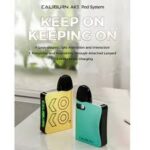Perfume has been an essential part of human history for thousands of years, captivating us with its ability to evoke memories, emotions, and atmospheres with just a whiff. From ancient civilizations to modern society, perfume has evolved into an art form, blending science and creativity. In this article, we’ll explore the fascinating world of perfume—its origins, types, how to choose the perfect scent, and tips on how to make the most of your favorite fragrance.
The Origins of Perfume
Perfume has roots as far back as 3,000 BC in Mesopotamia and ancient Egypt, where scents were created by blending oils, flowers, and spices. The word “perfume” itself comes from the Latin phrase per fumum, which means “through smoke.” Perfumes were used in religious ceremonies, with scents like frankincense and myrrh taking center stage. Ancient Egyptians also used perfumes in their beauty rituals, associating certain scents with gods and goddesses. This love for fragrance eventually spread to Greece, Rome, and later, the Arab world, where significant advances in perfume distillation were made.
Types of Perfume
Perfumes come in various concentrations and are classified based on their intensity and longevity. Here’s a quick guide to the most common types of perfume:
- Eau de Cologne: This is the lightest form of perfume, typically containing about 2-4% fragrance oil. It’s a refreshing option for hot weather and has a light, fresh scent, although it fades within a few hours.
- Eau de Toilette (EDT): With a slightly higher concentration of 5-15%, eau de toilette lasts a bit longer than cologne and is popular for daytime use. It offers a balance of freshness and lasting power.
- Eau de Parfum (EDP): This option contains 15-20% fragrance oil, making it longer-lasting and more intense. Eau de parfum can last all day and is suitable for both day and night.
- Parfum: Known as pure perfume or extrait de parfum, this is the most concentrated and luxurious type, with 20-30% fragrance oil. It only requires a small amount for a lasting effect and has an intense scent that can last 24 hours or more.
Notes in Perfume Composition
Perfume is created using different “notes,” which determine the overall scent profile and how it develops over time. There are three main notes:
- Top Notes: These are the initial scents you smell when you apply perfume, but they evaporate quickly. Common top notes include citrus, light fruits, and herbs.
- Heart (Middle) Notes: These form the core of the perfume and emerge once the top notes fade. Floral, spice, and fruity notes are common here, giving the perfume its character.
- Base Notes: These are the longest-lasting scents, anchoring the fragrance. They develop slowly and usually consist of rich, deep scents like vanilla, musk, amber, and wood.
How to Choose the Perfect Perfume
Choosing the right perfume can be challenging, as it often depends on personal preferences, mood, and even season. Here are some steps to help you find the ideal fragrance:
- Understand Your Scent Profile: Think about scents you’re naturally drawn to. If you love floral or fresh scents, you might enjoy perfumes with rose, lavender, or citrus notes. Those drawn to warm, comforting aromas might prefer vanilla, sandalwood, or amber.
- Test the Fragrance on Your Skin: Perfume smells differently on each person due to unique body chemistry. Apply it on your wrist or pulse points and wait a few minutes for the scent to settle before deciding.
- Consider the Occasion: Lighter fragrances like citrus and floral are ideal for daytime or work, while richer, deeper scents are suited for evening wear or special occasions.
- Match the Season: Citrus, aquatic, and green notes work well in spring and summer, while woody, spicy, and warm scents are perfect for autumn and winter.
How to Make Your Perfume Last Longer
A common concern with perfume is how to make it last throughout the day. Here are some tips to help you maximize the longevity of your fragrance:
- Moisturize Your Skin First: Perfume sticks better to moisturized skin. Apply a fragrance-free lotion or matching scented lotion before spraying your perfume.
- Apply to Pulse Points: These warm areas of your body—like wrists, neck, behind the ears, and inner elbows—help diffuse the fragrance better.
- Don’t Rub the Perfume: Rubbing your wrists after applying perfume can break down the scent and make it fade faster. Instead, let the fragrance settle naturally.
- Layer with Matching Products: Many perfumes come with body lotions or oils in the same scent, which can help amplify and extend the fragrance.
- Store Properly: Heat, light, and humidity can degrade perfume over time. Keep it in a cool, dark place, like a drawer, to preserve its scent.
Perfume Trends and Popular Scents
Perfume trends evolve, with some scents becoming classics while others fade. Currently, popular perfume trends include:
- Gender-Neutral Fragrances: Unisex perfumes are on the rise, with scents that blend masculine and feminine notes, offering versatility and appeal to everyone.
- Natural and Sustainable Ingredients: Eco-conscious consumers are increasingly choosing perfumes made with natural and sustainable ingredients, avoiding synthetic chemicals.
- Gourmand Scents: These fragrances include notes like chocolate, vanilla, and caramel, which create a cozy, comforting aroma.
- Floral and Woody Blends: Combining florals with woody notes like sandalwood or cedar adds depth to a fragrance, giving it both freshness and warmth.
- Layering Scents: Many people are now experimenting with layering multiple scents to create their own unique fragrance.
How Perfume Enhances Your Personal Brand
Wearing a signature scent can have a powerful impact on how people perceive you. Here are some ways perfume contributes to your personal brand:
- Creates Lasting Impressions: Scent is closely tied to memory, so wearing a signature fragrance can make you memorable to others.
- Boosts Confidence: Smelling good can elevate your confidence and improve your mood, making you feel more polished and self-assured.
- Reflects Personality: Your choice of fragrance can say a lot about your style and personality. Fresh, citrusy scents give off a lively, energetic vibe, while deeper, spicier perfumes convey sophistication and elegance.
The Future of Perfume
The perfume industry continues to innovate, with a growing focus on sustainability, personalized scents, and immersive fragrance experiences. Brands are increasingly using AI and scent science to develop custom perfumes tailored to individual tastes. Sustainable packaging and ethically sourced ingredients are becoming more common as consumers seek eco-friendly products.
Moreover, the rise of virtual scent experiences and VR technology could change the way we shop for perfumes, allowing us to explore new scents in an immersive, digital environment. The future of perfume looks promising, offering more ways for people to express themselves through scent.
Conclusion
Perfume is more than just a pleasant aroma; it’s a way to express your individuality, evoke memories, and make lasting impressions. Whether you’re drawn to floral, spicy, woody, or gourmand notes, the world of perfume offers a vast array of choices to suit every personality and occasion. By understanding the art of fragrance, you can find a scent that resonates with you, enhances your confidence, and becomes a beloved part of your daily ritual.




